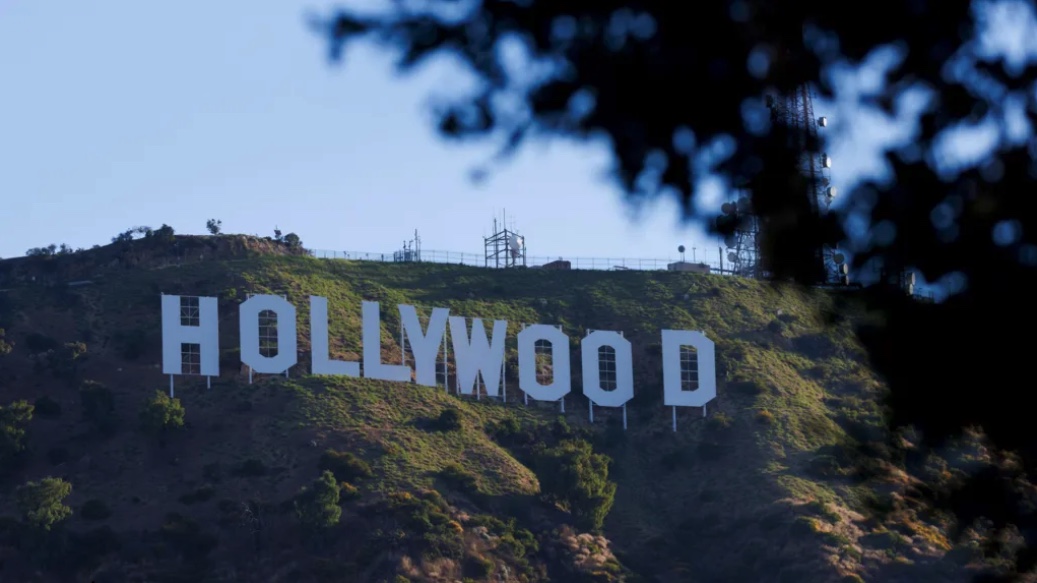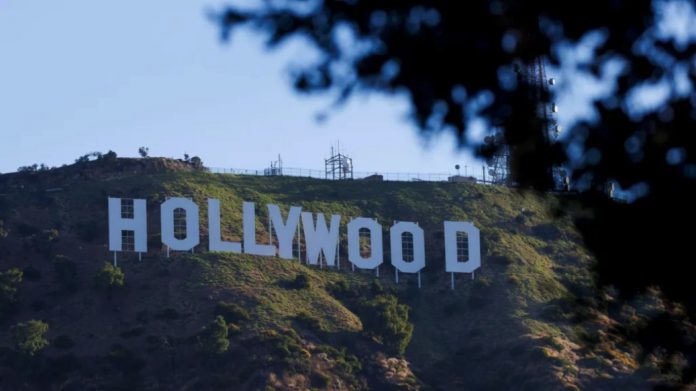ไมเคิล ฟอร์ติน เคยเป็นส่วนหนึ่งของยุคทองแห่งการสตรีมของฮอลลีวูด นักแสดงและผู้กำกับภาพทางอากาศคนนี้ได้เปลี่ยนความหลงใหลในการบังคับโดรนให้กลายเป็นธุรกิจที่มีกำไรในปี 2012 ซึ่งเป็นช่วงเวลาเดียวกับที่สงครามการสตรีมเริ่มต้นขึ้น นานนับทศวรรษ เขาบินอยู่เหนือกองถ่ายภาพยนตร์ สร้างฉากทางอากาศที่สวยงามให้กับภาพยนตร์และรายการทีวีใน Netflix Amazon และ Disney
แต่ตอนนี้เขากำลังจะกลายเป็นคนไร้บ้านอีกครั้ง เขาถูกขับไล่ออกจากบ้านที่ฮันติงตันบีชที่เขาอยู่กับภรรยาและลูกเล็ก ๆ อีกสองคน และตอนนี้เขากำลังจะถูกไล่ออกจากอพาร์ตเมนต์ในลาสเวกัสที่พวกเขาย้ายมาอยู่เพราะไม่สามารถอยู่ในแคลิฟอร์เนียตอนใต้ได้อีกต่อไป
“เราเคยออมเงินเพื่อซื้อบ้าน เรามีเงิน เราทำทุกอย่างถูกต้องแล้ว” เขากล่าว “เมื่อสองปีที่แล้ว ผมไม่เคยกังวลเกี่ยวกับการออกไปทานอาหารเย็นกับภรรยาและลูก ๆ แล้วใช้เงิน 200 ดอลลาร์เลย ตอนนี้ผมกังวลกับการออกไปข้างนอกแล้วใช้เงิน 5 ดอลลาร์ซื้ออาหารเซ็ตในแมคโดนัลด์”
นานกว่าสิบปี ที่ธุรกิจในฮอลลีวูดกำลังรุ่งเรือง โดยสตูดิโอต่าง ๆ พยายามแข่งขันกับบริษัทใหม่ๆ อย่าง Netflix และ Hulu แต่ช่วงเวลาดี ๆ นั้นหยุดชะงักลงในเดือนพฤษภาคม 2023 เมื่อคนเขียนบทในฮอลลีวูดพากันหยุดงานประท้วง
การหยุดงานประท้วงนี้กินเวลาหลายเดือน และเป็นครั้งแรกตั้งแต่ทศวรรษ 1960 ที่ทั้งนักเขียนบทและนักแสดงร่วมมือกันหยุดการผลิตในฮอลลีวูดโดยสิ้นเชิง แต่แทนที่ทุกอย่างจะกลับมาคึกคัก หลังจากผ่านไปหนึ่งปีตั้งแต่การประท้วงสิ้นสุดลง การผลิตกลับหดตัวลงอย่างมาก
โปรเจกต์ต่าง ๆ ถูกยกเลิก การผลิตถูกลดลงทั่วทั้งเมือง เนื่องจากงานหายไป มีการปลดพนักงานในหลายสตูดิโอ ล่าสุดที่ Paramount ซึ่งเพิ่งปลดพนักงานรอบสองในสัปดาห์นี้ ขณะที่บริษัทหนังที่มีชื่อเสียงนี้กำลังเตรียมควบรวมกิจการกับบริษัทผลิตภาพยนตร์ Skydance
อัตราการว่างงานในอุตสาหกรรมภาพยนตร์และทีวีของสหรัฐฯ อยู่ที่ 12.5% ในเดือนสิงหาคม แต่หลายคนคิดว่าตัวเลขนี้อาจสูงกว่านั้นมาก เนื่องจากคนทำงานในวงการภาพยนตร์หลายคนไม่ได้ยื่นขอรับสวัสดิการการว่างงาน เพราะพวกเขาไม่เข้าข่าย หรือพวกเขาใช้สิทธิประโยชน์หมดไปแล้วหลังจากที่ไม่ได้ทำงานมาหลายเดือน
โดยรวม จำนวนการผลิตในสหรัฐฯ ในไตรมาสที่สองของปี 2024 ลดลงประมาณ 40% เมื่อเทียบกับช่วงเวลาเดียวกันในปี 2022 ทั่วโลก มีการลดลง 20% ในช่วงเวลานั้น ตามข้อมูลจาก ProdPro ซึ่งติดตามการผลิตทีวีและภาพยนตร์
นั่นหมายความว่าเราจะได้ดูภาพยนตร์และซีรีส์ที่น่าดูใหม่น้อยลง
แต่ผู้เชี่ยวชาญบอกว่าความรุ่งเรืองของการสตรีมไม่น่าจะยั่งยืน และสตูดิโอกำลังพยายามหาวิธีสร้างผลกำไรในโลกใหม่ที่ผู้คนไม่จ่ายเงินเพื่อดูทีวีผ่านสายเคเบิลที่ได้รับการสนับสนุนจากโฆษณา
“ความเฟื่องฟูของคอนเทนต์กำลังหมดลม” แมทธิว เบลโลนี ผู้ก่อตั้ง Puck News ซึ่งรายงานเกี่ยวกับอุตสาหกรรมบันเทิงกล่าว “คำว่าภาวะวิกฤตนั้นเหมาะสม ผมพยายามไม่พูดให้เกินจริง แต่ภาวะวิกฤตคือสิ่งที่คนรู้สึก”
ส่วนหนึ่งของความรุ่งเรืองนี้เกิดจากวอลล์สตรีท ที่บริษัทยักษ์ใหญ่อย่าง Netflix เติบโตอย่างรวดเร็ว และสตูดิโออย่าง Paramount ที่เห็นราคาหุ้นของพวกเขาพุ่งสูงขึ้นเพราะการเพิ่มบริการสตรีมมิ่งของตัวเอง
“มันทำให้ตลาดคอนเทนต์ร้อนแรงเกินไป เมื่อไม่กี่ปีที่ผ่านมามีซีรีส์แอคชั่นที่มีบทถึง 600 เรื่องที่ออกอากาศ แล้วตลาดหุ้นก็หยุดตอบแทนสิ่งนั้น” เบลโลนีกล่าว “Netflix ล้มเหลว — บริษัทอื่น ๆ ก็ล้มเหลวเช่นกัน Netflix ฟื้นตัวแล้ว — แต่บริษัทอื่น ๆ กำลังพยายามดิ้นรนเพื่อให้ได้กำไร”
นอกเหนือจากฟองสบู่การสตรีมที่แตกแล้ว การผลิตบางอย่างยังถูกล่อลวงออกจากแคลิฟอร์เนียด้วยแรงจูงใจด้านภาษีที่น่าดึงดูดในรัฐและประเทศอื่นๆ ผู้นำลอสแองเจลิสกังวลเกี่ยวกับการชะลอตัวนี้มากจนเมื่อเดือนที่แล้ว นายกเทศมนตรีคาเรน บาส ได้จัดตั้งคณะทำงานเพื่อพิจารณาแรงจูงใจใหม่ๆ สำหรับการผลิตภาพยนตร์ในฮอลลีวูด
“อุตสาหกรรมบันเทิงมีความสำคัญอย่างยิ่งต่อความมีชีวิตชีวาทางเศรษฐกิจของภูมิภาคลอสแองเจลิส” บาสกล่าวเมื่อประกาศแผนดังกล่าว โดยอธิบายว่าเป็น “รากฐาน” ของเศรษฐกิจของเมือง และจัดหางานหลายแสนตำแหน่ง
ข้อมูลล่าสุดแสดงให้เห็นว่าอุตสาหกรรมบันเทิงมีส่วนสนับสนุนเศรษฐกิจในภูมิภาคนี้มากกว่า 115 พันล้านดอลลาร์สหรัฐฯ (86 พันล้านปอนด์) ต่อปี โดยมีฐานการจ้างงานกว่า 681,000 คน นายกเทศมนตรีกล่าว
การหยุดงานประท้วงของนักเขียนบทและนักแสดงกินเวลาหลายเดือนและส่งผลให้เกิดสัญญาของสหภาพแรงงานที่ให้เงินมากขึ้นและการคุ้มครองจากปัญญาประดิษฐ์ (AI)
ดันแคน แคร็บทรี-ไอร์แลนด์ หัวหน้าผู้เจรจาของสหภาพนักแสดงบันเทิงแห่งสหรัฐฯ (Screen Actors Guild) บอกกับ BBC ว่าการควบรวมกิจการในฮอลลีวูดบางอย่างนั้นหลีกเลี่ยงไม่ได้ แต่เขามองโลกในแง่ดีว่าการผลิตจะเริ่มกลับมาเพิ่มขึ้นในไม่ช้า
“สิ่งที่ทำให้บริษัทเหล่านี้พิเศษ สิ่งที่ทำให้พวกเขามีความสามารถพิเศษในการสร้างมูลค่าคือความสัมพันธ์ของพวกเขากับนักสร้างสรรค์ผลงาน” เขากล่าว ขณะเยี่ยมชมแนวร่วมประท้วงนอกสำนักงานของ Disney ในเดือนกันยายน ที่ซึ่งนักพากย์วิดีโอเกมกำลังหยุดงานประท้วงเพื่อเรียกร้องการคุ้มครองที่คล้ายกัน
ฮอลลีวูด “มักจะคิดว่าตัวเองอยู่ในภาวะวิกฤต” เขากล่าว “มันเป็นเมืองที่เผชิญกับนวัตกรรมทางเทคโนโลยีและการเปลี่ยนแปลงต่าง ๆ ตลอดเวลา ซึ่งเป็นส่วนหนึ่งของเสน่ห์ การรักษาความสดใหม่ของคอนเทนต์คือการที่ทุกคนมีความคิดว่าทุกอย่างไม่จำเป็นต้องเป็นอย่างที่เคยเป็นมา”
บริษัทโดรนของฟอร์ตินเคยทำงานเกือบทุกวันก่อนการประท้วง แต่ตอนนี้เขาบินโดรนไปเพียง 22 วันในหนึ่งปีนับตั้งแต่การประท้วงสิ้นสุดลง และในฐานะนักแสดง – เขามักจะรับบทเป็นตัวร้าย – เขาได้ทำงานเพียง 10 วัน เขาเคยทำงานเป็นนักแสดงประกอบเพื่อให้มีรายได้ แต่ค่าจ้างแทบจะไม่พอค่าน้ำมันเพื่อเดินทางไปลอสแองเจลิสจากลาสเวกัส
“มันเป็นช่วงเวลาที่ดี และมันก็พังทลายลง” ฟอร์ตินกล่าวหลังจากที่เขาบินโดรนถ่ายทำรายการ Platonic ของ AppleTV+ ซึ่งเป็นงานแรกของเขาในการใช้โดรนตั้งแต่เดือนเมษายน
“ทุกอย่างค่อย ๆ คืนกลับมาทีละเล็กทีละน้อย” เขากล่าวในรถตู้ของเขาก่อนที่จะขับกลับไปลาสเวกัสเพื่อเข้าฟังการพิจารณาคดีในศาล เพื่อสู้คดีกับคำสั่งขับไล่
“ฮอลลีวูดให้ทุกอย่างกับผม” เขากล่าว “แต่มันรู้สึกเหมือนอุตสาหกรรมนี้ทอดทิ้งใครหลายคน ไม่ใช่แค่ผมคนเดียว”
Hollywood’s big boom has gone bust

Michael Fortin was at the heart of Hollywood’s golden age of streaming.
The actor and aerial cinematographer turned his hobby of flying drones into a profitable business in 2012 just as the streaming wars were taking off. For a decade, he was flying high above film sets, creating sleek aerial shots for movies and TV shows on Netflix, Amazon and Disney.
Now he’s on the verge of becoming homeless – again. He was evicted from the Huntington Beach home he shared with his wife and two young children and now is being booted from the Las Vegas apartment they moved to because they could no longer afford to live in Southern California.
“We were saving to buy a house, we had money, we had done things the right way,” he says. “Two years ago, I didn’t worry about going out to dinner with my wife and kids and spending 200 bucks.”
“Now I worry about going out and spending $5 on a value meal at McDonald’s.”
For over a decade, business was booming in Hollywood, with studios battling to catch up to new companies like Netflix and Hulu. But the good times ground to a halt in May 2023, when Hollywood’s writers went on strike.
The strikes lasted multiple months and marked the first time since the 1960s that both writers and actors joined forces – effectively shutting down Hollywood production. But rather than roaring back, in the one year since the strikes ended, production has fizzled.
Projects have been cancelled and production was cut across the city as jobs have dried up, with layoffs at many studios – most recently at Paramount. It had a second round of layoffs this week, as the storied movie company moves to cut 15% of its workforce ahead of a merger with the production company Skydance.
Unemployment in film and TV in the United States was at 12.5% in August, but many think those numbers are actually much higher, because many film workers either do not file for unemployment benefits because they’re not eligible or they’ve exhausted those benefits after months of not working.
As a whole, the number of US productions during the second quarter of 2024 was down about 40% compared to the same period in 2022. Globally, there was a 20% decline over that period, according to ProdPro, which tracks TV and film productions.
That means less new movies and binge-worthy shows for us.
But experts say the streaming boom wasn’t sustainable. And studios are trying to figure out how to be profitable in a new world when people don’t pay for cable TV funded by commercials.
“The air has come out of the content bubble,” says Matthew Belloni, the founder of Puck News, which covers the entertainment industry. “Crisis is a good word. I try not to be alarmist, but crisis is what people are feeling.”
Part of the boom was fuelled by Wall Street, where tech giants like Netflix saw record growth and studios, like Paramount, saw their share prices soar for adding their own streaming service offers.
“It caused an overheating of the content market. There were 600 scripted live action series airing just a few years ago and then the stock market stopped rewarding that,” Mr Belloni says. “Netflix crashed – all the other companies crashed. Netflix has since recovered – but the others are really struggling to get to profitability.”
And along with the streaming bubble bursting, some productions are also being lured away from California by attractive tax incentives in other states and countries. Los Angeles leaders are so concerned about the slowdown that Mayor Karen Bass created a task force last month to consider new incentives for film production in Hollywood.
“The entertainment industry is critical to the economic vitality of the Los Angeles region,” Bass said announcing the plan, explaining it is a “cornerstone” of the city’s economy and supplies hundreds of thousands of jobs.
Recent data shows the entertainment industry contributes over $115bn (£86bn) annually to the region’s economy, with an employment base of over 681,000 people, the mayor said.
The writers’ and actors’ strikes lasted for months and resulted in union contracts that offer more money and protections against artificial intelligence.
Duncan Crabtree-Ireland, the chief negotiator with the Screen Actors Guild union, told the BBC that some consolidation in Hollywood was inevitable. He says he is optimistic that production will be ramping up soon.
“What makes these companies special, what gives them their unique ability to create value is their relationship with creative talent,” he said while visiting a picket line outside a Disney office in September, where video game voice actors are currently on strike fighting for similar protections.
Hollywood “always thinks it’s in crisis,” he says. “It is a town that constantly faces technological innovation – all kinds of change – which is part of the magic. Part of keeping content fresh is everyone having the idea that things don’t always have to be the way they’ve been.”
Mr Fortin’s drone company was operating nearly every day before the strikes. Now he’s flown the drones just 22 days in the year since the strikes ended. And as an actor – he often plays tough guys – he has worked just 10 days. He used to work as a background actor to get by, but the pay barely covers the gas money to get to Los Angeles from Las Vegas.
“It was a great wave, and it crashed,” Mr Fortin said after a day flying his drones on the AppleTV+ show Platonic – his first gig with drones since April.
“Things are coming in little by little,” he says in his van before driving back to Las Vegas for a court hearing to fight his eviction order.
“Hollywood gave me everything,” he says. “But it feels like the industry has turned its back on lots of people, not just me.”
By Regan Morris, BBC News

















